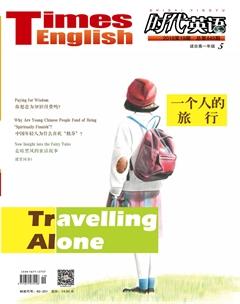跟踪导练(二)(4)
完形填空
It was Toms first visit to England, and he was looking forward to his first journey, on Londons Underground Railway. And against his friends , he was determined to travel .
He entered the station shortly after five oclock in the afternoon. This is a time to travel in London, crowds of people go home from work at this hour. He to join a long line of people waiting for tickets. When at last his came, he had some difficulty in making himself understood by the ticket seller. , he got the right ticket in the end and by asking people the , he also found the right platform. It was tight with people. He did not to get on the first train, but he was able to move nearer to the platform so as to be in a better to get on the next one. When this train came in, Tom was forward onto the train by the of people from behind. The doors closed and the train moved off. He was unable to see the of the stations where the train , but he knew that the station he wanted was the sixth stop along the line. When the train the sixth station, Tom got off, feeling that his journey had been so easy. But he suddenly realized that he had come to a station he had never . He explained his to a man who was standing on the platform. With a smile on his face, he told Tom that he had a train going in the opposite direction.
1. A. thought B. advice C. relation D. action
2. A. alone B. abroad C. freely D. bravely
3. A. short B. certain C. possible D. bad
4. A. for B. yet C. so D. but
5. A. planned B. had C. happened D. hoped
6. A. luck B. time C. chance D. turn
7. A. Thus B. Instead C. Therefore D. However
8. A. question B. way C. place D. condition
9. A. packed B. mixed C. covered D. held
10. A. manage B. try C. agree D. expect
11. A. situation B. direction C. position D. vacation
12. A. fought B. swept C. drawn D. brought
13. A. speed B. support C. challenge D. push
14. A. signs B. points C. names D. numbers
15. A. left B. stopped C. aimed D. moved
16. A. passed B. changed C. reached D. followed
17. A. glad B. sick C. sorry D. tired
18. A. thought of B. heard of
C. arrived at D. stayed at
19. A. result B. mistake C. difficulty D. ticket
20. A. got B. caught C. met D. travelled
語法填空
Sydney is Australias most exciting city. The history of Australia begins here. It is the biggest city in Australia, one of the most beautiful cities in the world.
Its warm summer climate and cool winter have made it a favorite city. There (be) three things that made Sydney famous: its beautiful harbor, the Sydney Harbor Bridge, and the Sydney Opera House.
But there are many more interesting things in Sydney such as beautiful shops and rows of interesting old houses (build) everywhere in the 19th century. White sandy (beach) lie only within a short walk from hotels. You will find beach barbecues, surfing, and diving under the sea very (enjoy). There are also public street festivals such as the Chinese New Year between January and February. At this time, you need (book) hotels in advance.
Some Americans think it is very British. Some British visitors think it is like America. There is some (true) in both these opinions, because Sydney is mixed both the Old World Europe and the New World America, which (make) itself into something that is British nor American, but truly Australian.
1. 2. 3. 4. 5.
6. 7. 8. 9. 10.

